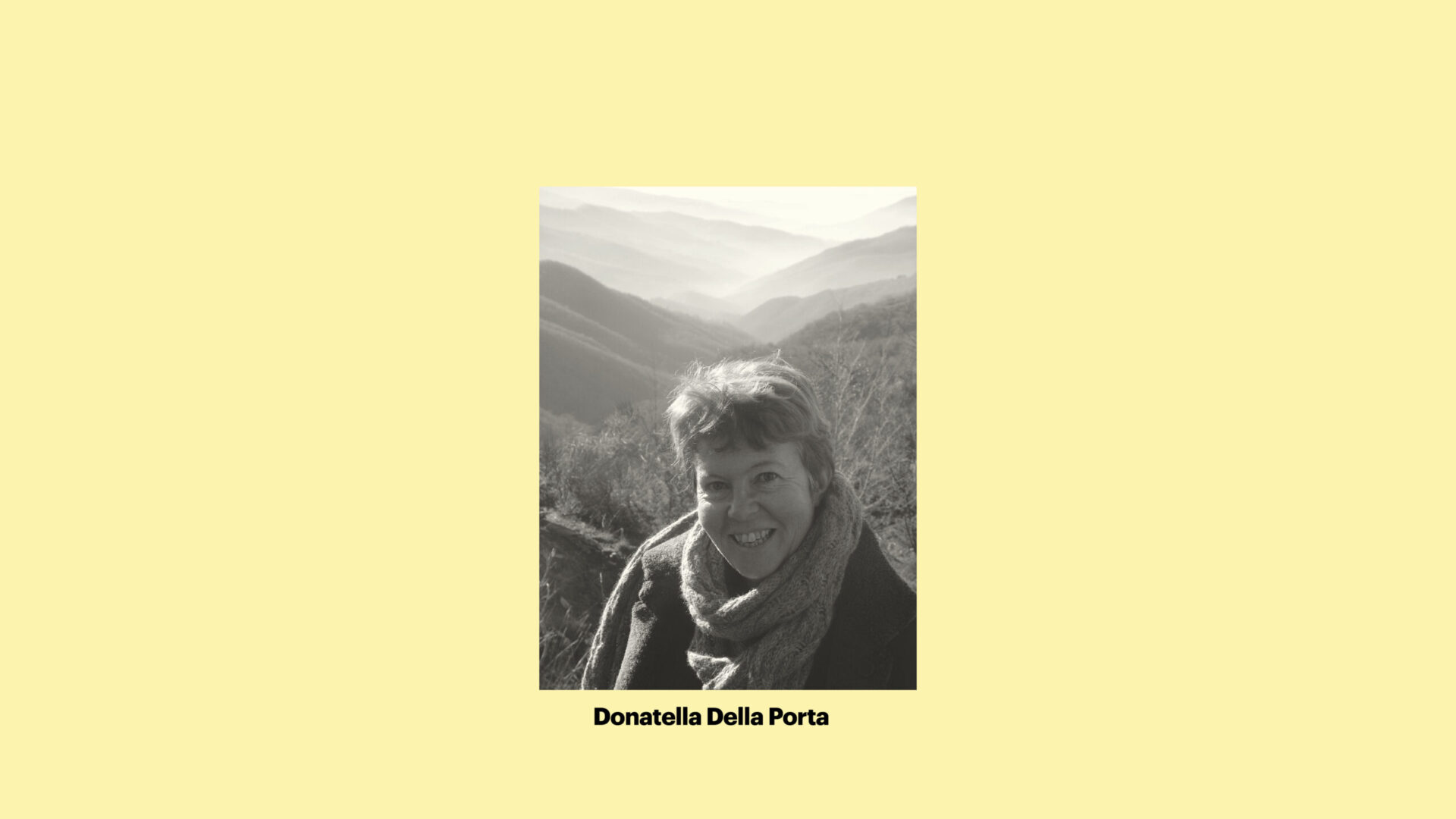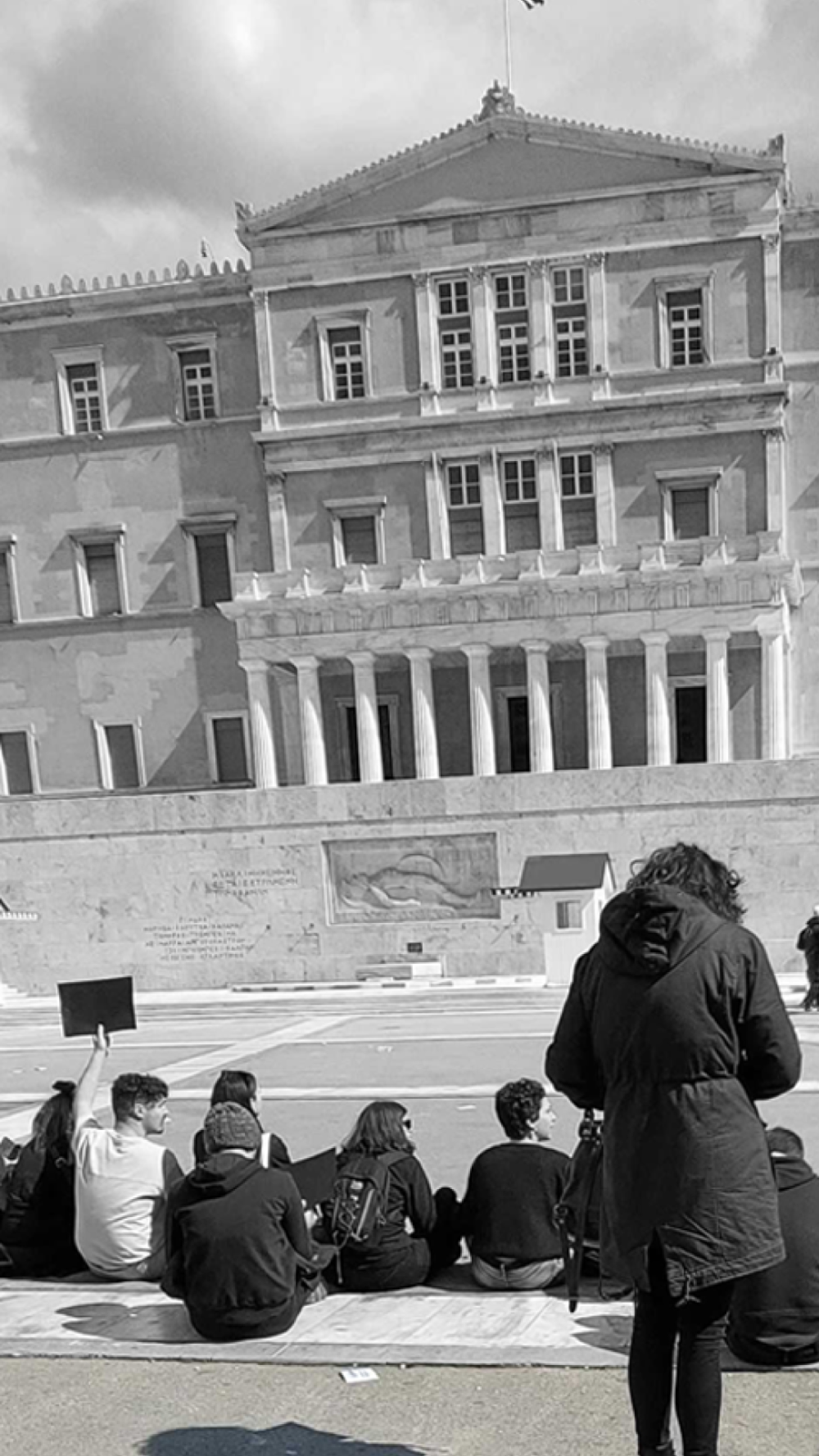
Donatella Della Porta: Gen Z has been born and has developed in moments of crisis
In May 2022, Eteron conducted a video interview with Donatella Della Porta, Professor of Political and Social Sciences, whose work is an international reference in the field of social movement studies.
In the context of the Gen Z | Voice On project, we discussed the politicisation of young people worldwide, the psychological impact of multiple crises and the use of social media as a tool to diffuse social messages.
Below you can find the transcript of the interview.
What are the main findings of the research you have conducted on the Millennials’ protests?
I think that the concept of generation is, in general, very important in the development of a critical view on injustice of different types, intersectionally addressing the issues of injustice in social terms, in gender terms, in racial terms and so on. And it has done so also starting from an acknowledgement of some specific characteristics of Millennials’ own experiences. So, what we have studied is especially the mobilised part of this generation, those who were politically active. What we saw is that it is a generation that defines itself as precarious not only in terms of the work conditions but also, more generally, in terms of their life experience.
And it is so because there is at the same time a reduction of the type of protections on the labour market, but also a decline in general of social rights that affects this generation in a very deep way, changing the perceptions of what their life is going to be, procrastinating the achievement of some of the main steps in the process of entering societies and so on. It is also a generation that has a strong sense of betrayal, of being betrayed not only from the previous generations but mostly from the political and social system that does not include the Millennial generation in the political and social process. And it feels betrayed not only from the government but also, often, from those parties that are supposed to care about social injustice. Nevertheless, it is a generation that doesn’t despair because it is very committed to transformation. We know this because besides the research that we have done on the most mobilised side of this generation, what we learn looking at opinion polls is that against the expectations of depoliticization, in reality in many countries this generation has been characterised by high sense of commitment, high tolerance and sensibilities to issues of rights in general.
What are the differences between the politicisation of Gen Zers and that of the Millennials?
What we pointed out in our research is that also for activists, generations are short cohorts, smaller groups, because their understanding of generations is very much related to specific experiences that have been living through adolescent life and it is also very much affected by the specific characteristics of social movements in that period. For instance, what I mean is that the protests against austerity had different types of effects for the Millennial generation in Greece or in Germany because they had different degrees of intensity, and so also different capacity to involve the young generation. Considering these differences and the differences in the definition of generations itself, I think that what we can say is that the Millennial generation has been characterised by experiences of very broad movements, that have been able to have an impact also on the political and social level, but especially at the cultural level in several European countries.
Generation Z is a generation that has been born and has developed in moments of crisis that have been extremely intense and have interacted with each other. So, the financial crisis was not yet over in several countries, in particular in European peripheries like Southern Europe, and the pandemic crisis arrived, and the climate crisis became more and more visible and now there is a military crisis. So, it is a generation that has been embedded in a situation not only of crisis but also of multiple crises.
In different countries it’s this generation that undergoes different types of experiences. So the pandemic times had a particularly high impact on this generation. But also, in some countries the political experience of participation has been quite important, think about Chile for instance, that during the pandemic was able as a country to put forward and develop the seeds of a change that has been already developed in 2019 in pre-pandemic time. Young Generation Z has been very much involved in Lebanon in the protest for democracy, in Catalunya, in several countries, so it has been also a mobilised generation. But we still have to see which type of opportunities were created.
What psychological impact have the past decade’s crises, such as the economic recession and the pandemic, had on the Millennials?
I am not a psychologist but what we see in studying the mobilised part of this generation is that the personal life conditions are very relevant for the mobilisations. So, we have seen that many of the protests, like the Fridays for Future and the Black Lives Matter that we mentioned before, have been characterised by a strong degree of reflections, self-reflexivity on their own conditions of life. While in the past, progressive movements and movement activists tended to focus on the collective experiences, these movements also put a lot of attention on the ways in which people individually live through these experiences. And the sufferance related to the multiple types of exclusions and insecurity related also with all these crises has been part and parcels also of the discourse of the Fridays for Future that stress their own conditions as a generation that is denied a future, the possibility to decide on a future life and so on. Of course, at the individual level, then, the way of reacting to these feelings of insecurity could be very different. What we saw in the protests that I mentioned is that this generation is not totally resourceless because they have also been very much able to use their skills in technological issues, to trigger responses to these conditions, also in quite inventive ways and effective ways.
What is the correlation between the use of social media and youth movements?
The activists we interviewed were very explicit in connecting their own general experience of social interactions with their online experience. And they did so also in criticising the ways in which social movement organisations are often organised. So, I remember one of the interviewees saying: “Yes, we are the generation that is always texting and is accustomed to very fast connections. We are not a generation that can sit two hours in a room to talk about let’s say generic issues.” And the experience with technologies pushes towards often the search for very rapid responses but also on the positive sense of creativity. And this is something that we have seen in the Black Lives Matter protest for instance; pragmatic use of very different forms of communications elaborated by young people. From what we saw in our research, there is much more attention also to politicise the private sphere of life.
Μany of the groups we studied made by young activists were focusing their activities also on issues of sports and Art and they said “we need to do this because this is a precarious generation, is often a generation that doesn’t have time, that needs to have 3 jobs to attend universities that are more and more requiring fast commitment in learning and so on. So, we cannot ask people to sacrifice the small amount of free time they have, we have to politicise it.” I think this is important and another general observation on communications is the fact that the young activists are online doesn’t mean that they are not offline. The communicational skills are influenced by the experiences online but are also made by different forms of interactions offline. And this is already a lesson from the 2011 protest that the activists had already learned before. So, the movements of the squares were such because the activists had realised that they cannot mobilise only on facebook, or only on twitter by tweeting, that you have to use these instruments, but you also have to meet other people. And this is something that from the Millennial generation went also into the Z generation with the presence very often of forms of protest that are also forms in which direct interactions are facilitated. So, long types of protest are also made of moments of interactions and exchanges face to face by the activists.
How can social movements effectively defend civil liberties and protect their protests from police violence?
I think communication is one of these forms. What we saw in the protest against the assassination of George Floyd is that what was very important was that the killing was documented. This very skilled generation is also very careful in acquiring and preserving saving knowledge which is also particularly important because it is a type of knowledge that is more able to stimulate emotions, negative but also positive ones. So, in a period of infodemic that is produced on the several challenges from the pandemic to the war, I think that what is very important in terms of documenting, of opposing repression is documenting repression and making it visible and providing alternative knowledge and counter-information.
The process of Assange is an example of how much repression connects activism to the freedom of the Press, freedom of the Media. The Black Lives Matter protest could also be taken as an example of how repressions can be resisted because it is not just a matter of denouncing what happened and collecting evidence of repression itself, but, then, it is also very much a matter of spreading this information. And the successful global campaign around the assassination of George Floyd was also indicating that the message had then to be spread through different channels and in different forms.
For instance, what we saw in our research was that memory was very important for young people, connecting the memories of specific acts of repressions with previous ones and also connecting generational experiences with different forms of repressions. And I think this is particularly relevant because besides the state forms of repressions that activists are more accustomed to, like repression of street protest, there are, more and more, different forms of repressions through harassment and stigmatisation in the mass media. The pacifist movement is undergoing this very strong forms of repressions in this moment. And there are also what many movements denounce as the broad forms of repressing rights. From the new generations of women movements denouncing violence on women and other form of repression, to the physical forms of assassinations, like the assassinations of activists related to the climate justice movement in the South by the government but also by private actors. I am also thinking about the racist assassinations and so on.
So, I think that resisting repressions goes also beyond resisting state repressions and imply thinking about how to resist and oppose private forms of repressions, cultural forms of repressions.



